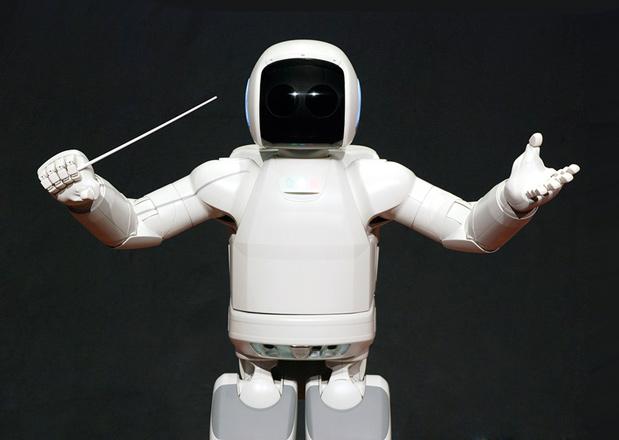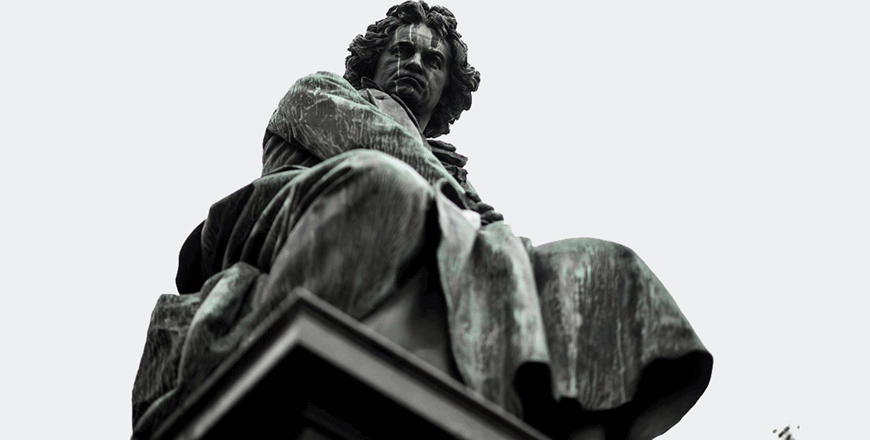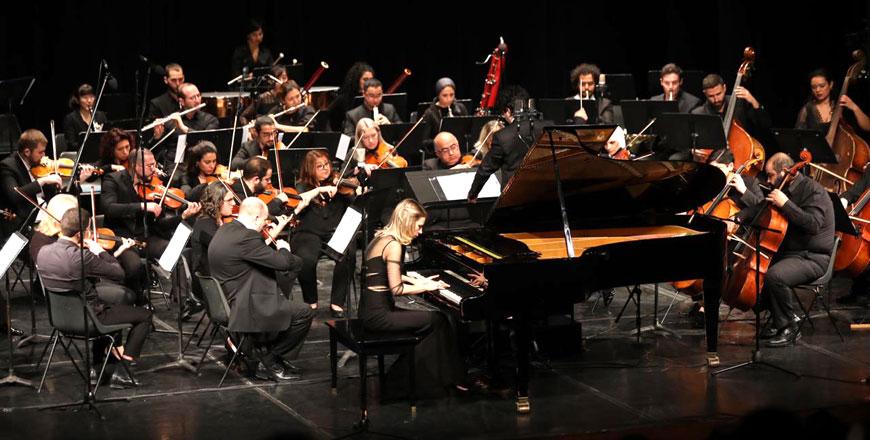You are here
Unfinished Beethoven symphony reimagined in a click
By AFP - Sep 22,2021 - Last updated at Sep 22,2021

Photo courtesy of soundonsound.com
By Nina Larson and Eloi Rouyer
Agence France-Presse
LAUSANNE — As conductor Guillaume Berney marks the opening downbeat, the first chords ring out in a Lausanne concert hall of what could conceivably be an extract of Beethoven’s Tenth Symphony — if the great German composer had ever managed to complete the piece.
The classical music world has often speculated what Ludwig van Beethoven (1770-1827) would have gone on to write after his monumental Ninth Symphony.
And a number of musicologists and composers have already ventured to orchestrate and complete some of the scraps of notation they believe were his first sketches for his next symphonic masterpiece.
But to mark their 10th anniversary season this year, Berney and the Nexus orchestra have decided to use artificial intelligence to create a four-minute extract which they have dubbed BeethovANN Symphony 10.1.
“That is not a typo,” Berney told the audience at the first night.
Berney explains that the ANN refers to the artificial neural network that created it, basically without human intervention.
“We don’t know what it will sound like,” Berney acknowledged to AFP ahead of the Lausanne concert.
The final score was only generated and printed out hours before the performance, after computer programme designer Florian Colombo oversaw the final step in what for him has been a years-long process.
‘Like watching a birth’
Seated in his small apartment with a view over the old city of Lausanne and the Alps in the distance, Colombo made a couple small changes before clicking a button to generate the score.
“It’s like watching a birth,” Berney said as he picked up the first pages emerging from the printer.
The excitement was palpable as the freshly created sheet music was presented to the orchestra.
The musicians eagerly began rehearsing for the evening concert, many smiling with surprise as the harmonies unfolded.
“This is an emotional experience for me,” said Colombo, himself a cellist, as the sound filled the hall.
“There is a touch of Beethoven there, but really, it is BeethovANN. Something new to discover.”
Berney agreed.
“It works,” he said. “There are some very good parts, and a few that are a bit out of character, but it’s nice,” the conductor said, acknowledging though that “maybe it lacks that spark of genius”.
Colombo, a computer scientist at the EPFL technical university, developed his algorithm using so-called deep-learning, a subset of artificial intelligence aimed at teaching computers to “think” via structures modelled on the human brain or ANNs.
To generate something that might possibly pass as an extract from Beethoven’s Tenth, Colombo first fed the computer all of the master’s 16 string quartets, explaining that the chamber works provided a very clear sense of his harmonic and melodic structures.
He then asked it to create a piece around one of the theme fragments found in Beethoven’s sparse notes that musicologists believe could have been for a new symphony.
“The idea is to just push a button to produce a complete musical score for an entire symphonic orchestra completely without intervention,” Colombo said.
“That is, except for all the work I put in ahead of time,” added the computer programmer who has been working for nearly a decade towards deep-learning-generated music.
‘Not blasphemous’
Colombo said that using a computer to try to recreate something begun by one of the world’s greatest musical geniuses was not encroaching on the human creative process.
Instead, he said, he saw his algorithm as a new tool for making musical composition more accessible and for broadening human creation.
While the programme “can digest what has already been done and propose something similar”, he said the aim was for “humans to use the tools to create something new”.
“It is not blasphemous at all,” Berney agreed, stressing that “no one is trying to replace Beethoven”.
In fact, he said, the German composer would likely have been a fan of the algorithm.
“Composers at that time were all avantgarde,” he said, pointing out that the best were “always eager to adopt new methods”.
Related Articles
BERLIN — A few notes scribbled in his notebook are all that German composer Ludwig van Beethoven left of his Tenth Symphony before his death
WASHINGTON — Ludwig van Beethoven died in Vienna nearly 200 years ago after a lifetime of composing some of the most influential works in cl
AMMAN — On Saturday, 46 musicians from 11 countries came together as a chamber orchestra to perform Ludwig van Beethoven’s renowned masterpi



















